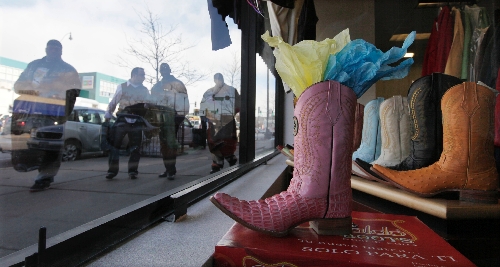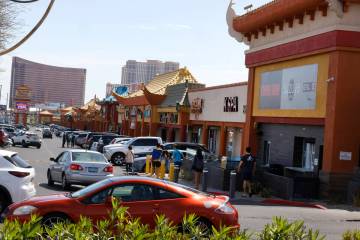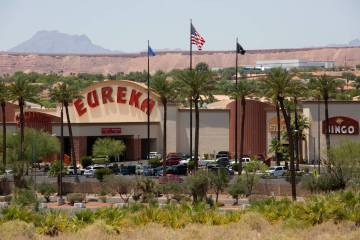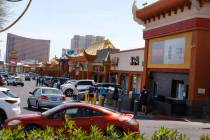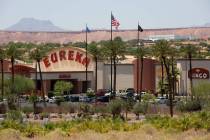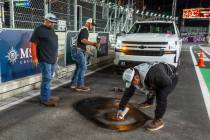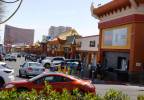Economy flexes strength; retail sales surge, factory orders rise
WASHINGTON -- The economy is showing renewed strength as retail sales surged last month and factory orders also increased. Such gains could lead to more hiring -- if they can be sustained.
Retailers said Thursday that store sales rose in February by the largest amount since November 2007. And orders to U.S. factories in January posted their sharpest rise in four months. It was another sign that manufacturing is helping drive the economic recovery.
The upbeat reports followed other encouraging signs this week: The service sector grew last month at its fastest pace in more than two years, according to a private survey of purchasing executives released Wednesday. And a similar survey on Monday found that manufacturers are also growing.
"We're going from a narrow recovery" led by manufacturing "to something much broader," said Brian Bethune, chief U.S. financial economist at IHS Global Insight.
Still, jobs are the big unknown. First-time claims for jobless benefits remain elevated, despite a drop last week. The Labor Department said Thursday that initial claims for unemployment aid fell by 29,000 to a seasonally adjusted 469,000 last week. But that drop only partly reversed a sharp rise in claims since the year began.
The four-week average of weekly claims, which smooths volatility, fell to 470,750. Yet that's still above the 425,000 level that economists say claims need to fall below to signal hiring.
"This level of claims is still discouragingly high and is not consistent with private-sector job growth," Zach Pandl, an economist at Nomura Securities, wrote in a research note.
One way that companies can raise output without adding jobs is to squeeze more production from their existing staff. The Labor Department said in a separate report Thursday that productivity rose by 6.9 percent in the fourth quarter. And labor costs fell at a 5.9 percent rate.
Output in the manufacturing sector is measured by the value of the goods produced; in the service sector, it's measured by revenue earned. Higher productivity, or output per hour worked, raises living standards in the long run. But it also lets companies get by with fewer employees.
A still-weak housing market is weighing on the recovery in the meantime. The number of people who agreed to buy a home fell sharply in January. The report Thursday from the National Association of Realtors said demand for housing fell as stormy weather slammed Eastern states.
The weakness, however, was not confined to the wintry Northeast. The biggest month-to-month drop was in the West.
The NAR's index is considered a gauge of future sales because typically there's a one- to two-month lag between a signed sales contract and a completed deal. The index has declined for two out of the past three months, in part because home shoppers feel less rushed after a deadline for a homebuyer tax credit was extended from Nov. 30 to April 30.
Las Vegas-based Home Builders Research reported 240 new home sales in January, a 16 percent decrease from the same month a year ago, and 3,111 existing home sales, up more than 20 percent from a year ago.
The Greater Las Vegas Association of Realtors reported total inventory of 19,742 units on the Multiple Listing Service in January, down 10 percent from the same month a year ago, with 8,107 units available without offers.
The weather wasn't the only culprit, wrote Jennifer Lee, an economist with BMO Capital Markets. "The impact of government incentives ... appears to be running out of steam, which is, frankly, a scary thought," she wrote.
The strong retail report came as shoppers shrugged off the snow and worries about the economy to buy full-price spring clothing and other items at the nation's malls, resulting in the strongest retail sales gain since November 2007, a month before the recession started.
The upbeat news also helped soothe fears among some economists that weak consumer spending might make the economic recovery short-lived.
A broad array of merchants, from luxury retailer Nordstrom to midbrow Macy's Inc. to discounter Target Corp., reported better-than-expected solid sales increases on Thursday that beat Wall Street analysts' estimates.
The overall 3.7 percent gain in February, according to the International Council of Shopping Centers's index of 31 merchants, came in the face of a decline in consumer confidence, high joblessness and tight credit.
It was the third consecutive monthly sales increase for retailers, according to the ICSC.



